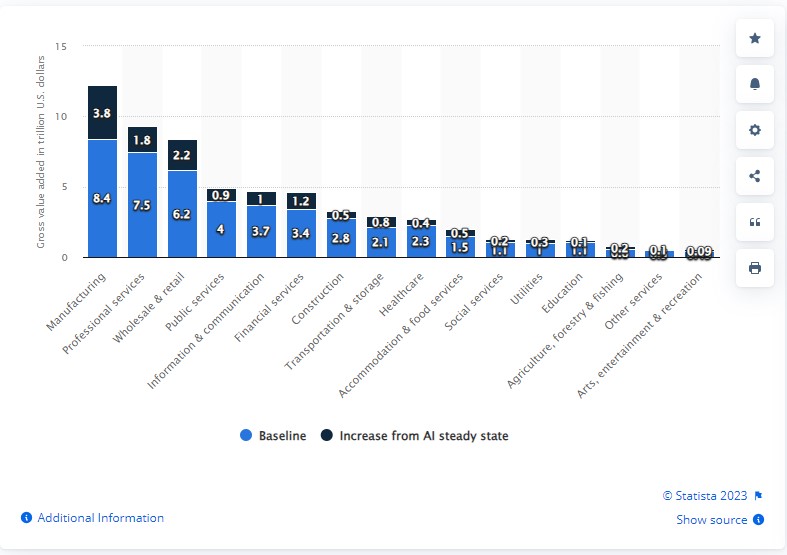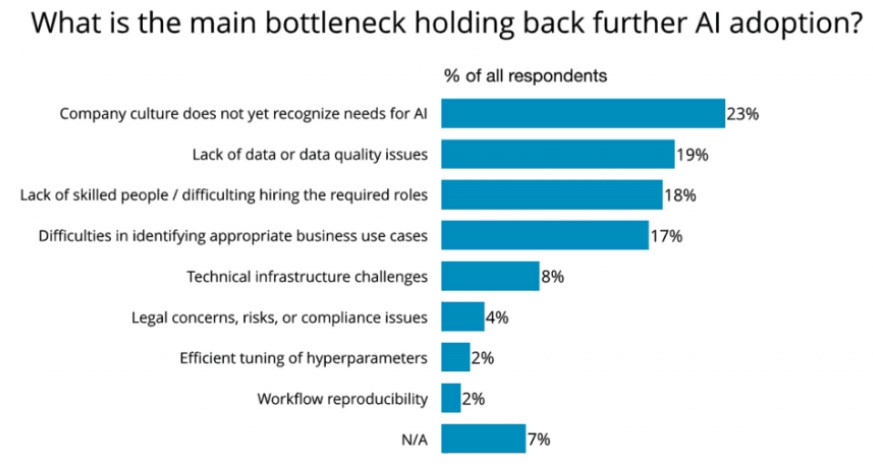Blog / Disruptive Technologies
Impact of AI: How is the new manager profile evolving?
Categories

The emergence of artificial intelligence (AI) is generating a profound transformation in all business sectors and managers are no strangers to this change. Faced with this reality, business leaders need to acquire specific skills to face the challenges and maximise the benefits that AI can bring to their organisations.
Artificial Intelligence: An opportunity to stand out in the digital economy
One of the main concerns of any CEO is to make his or her company stand out from its competitors, both through innovative ideas and initiatives and through overall operations that deliver superior performance. A 2010 Journal of Business Strategy study found that an organisation's superior performance lies in the preparation and focus of its managers, especially in three competencies related to innovation.
Today's market is clearly favouring digitally skilled managers, while those who lack these skills are losing competitiveness. In an environment of high production costs and variability in consumption, companies focus on short-term planning and efficiency to reduce fixed costs. To achieve this, they rely on IT tools, which has led to the dismissal of managers who have not been able to adapt to these new demands.
AI, along with other technological tools, is further driving this transformation. Managers base their future decisions on their past experience, but by using AI tools, they have access to a huge amount of accumulated real-world experience from all the plans and strategies analysed by AI. This gives managers an unprecedented ability to learn about good practices, identify new opportunities and avoid bad practices.
However, not all managers will be able to take full advantage of the benefits of AI. While there are no intellectual or cultural limitations to doing so, some professionals may find it difficult to adapt or lack the necessary creativity. Business history is replete with examples of companies destroyed by competitors who were able to take better advantage of technology.

AI: The most valued skills to take advantage of it
In terms of skills, the most competitive managers will be those who are creative, innovative, tech-savvy, good communicators, leaders in change management and oriented towards data-driven management models. These skills will enable managers to make the most of AI and effectively lead the implementation of AI in their organisations.
The rapid advancement of AI also poses challenges in terms of security, quality and confidentiality. The emergence of improvised 'experts' can create significant risks if the technology is not used appropriately. It is therefore essential that managers, especially the CIO, are adequately trained to anticipate these issues and become a reference in the organisation.
To be successful in this transformation process, managers must understand the scope of AI, both in terms of risks and opportunities, and know how to take advantage of them.
In addition, they must have management skills that enable them to add value to the company's strategic plan, adapt the information systems plan, provide excellent user service and efficiently structure the Information and Communication Technology (ICT) department.
In short, the profile of the new manager facing the irruption of AI requires specific competencies to lead the implementation of this technology in a controlled manner and maximise its benefits.

The emergence of AI requires adequate training
It is essential that business leaders are adequately trained to understand the scope of AI, communicate effectively, manage change and bring strategic value to their organisations. Those who are able to adapt and take full advantage of the opportunities that AI brings will be the most competitive in today's marketplace.
ZIGURAT’s Global MBA in Digital Transformation, a programme of which I am the Academic Director, equips you with all the necessary technical and managerial skills and tools to apply holistic digital transformation strategies in all areas of your business. It's a continuously updated programme that takes into account AI, IoT, and all the disruptive technologies that are reshaping our professional and personal lives.
Note: This article has been translated and adapted from a news piece published in economia3.com





